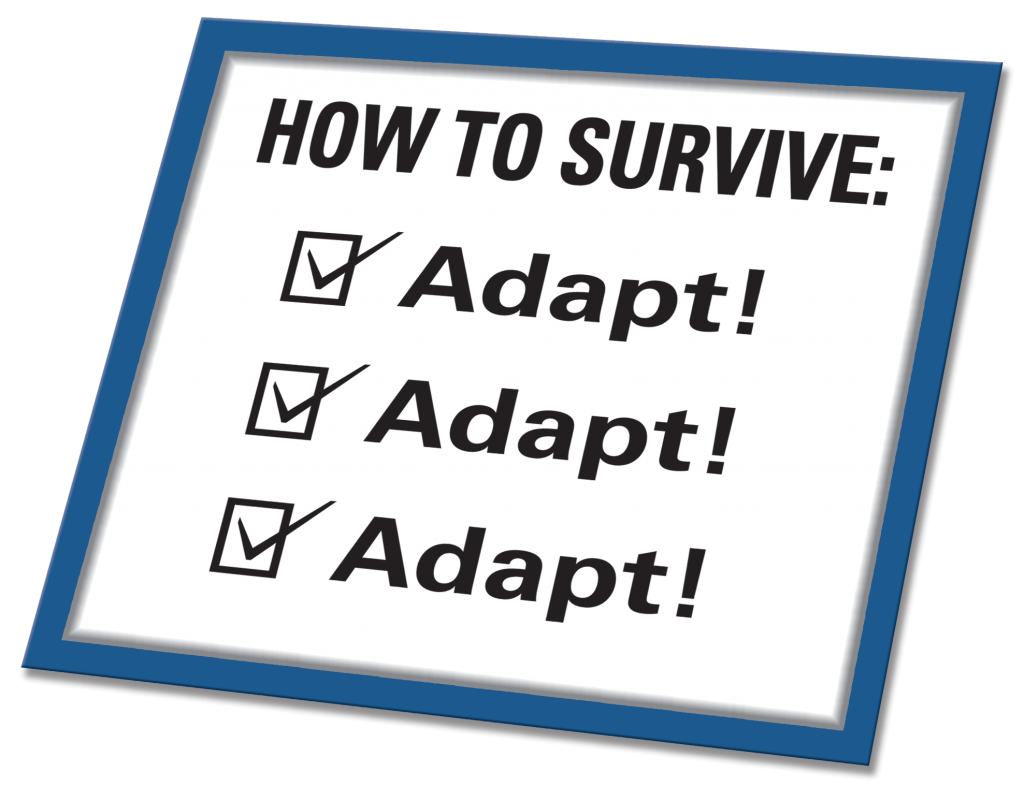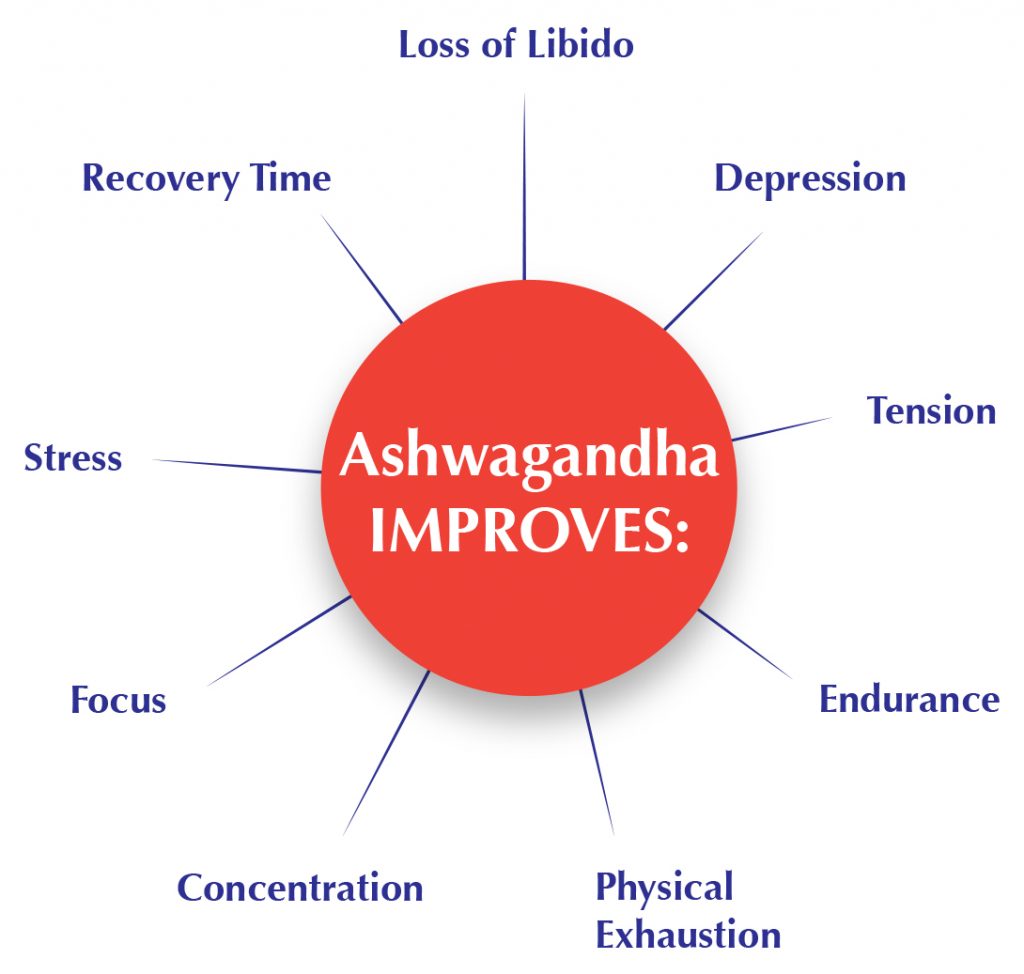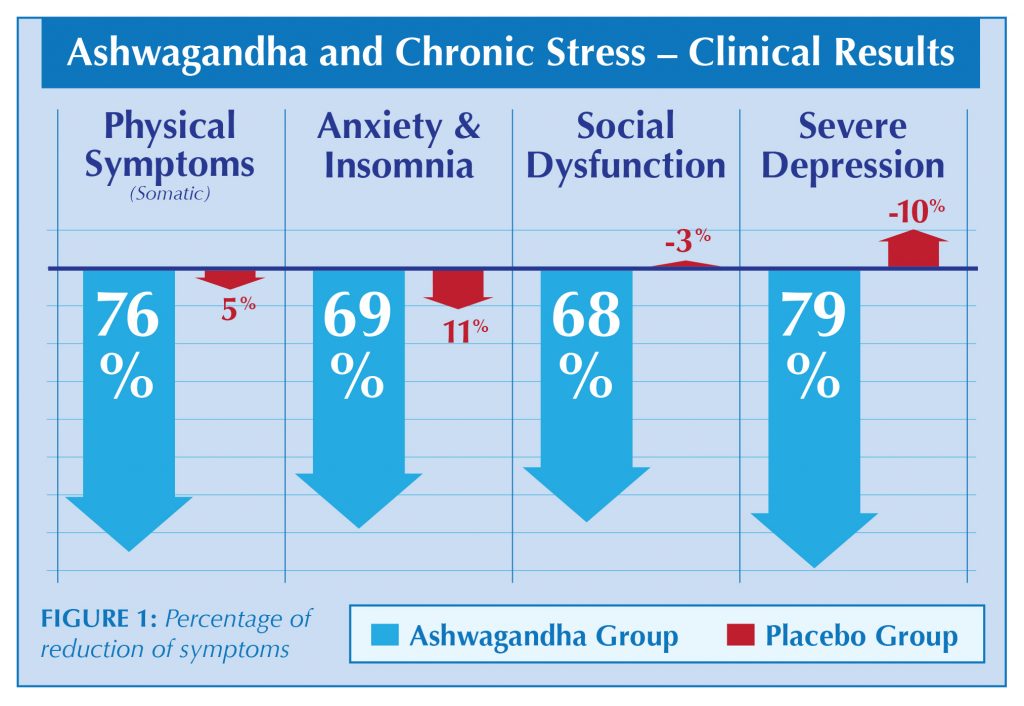ADAPT TO STRESS NATURALLY WITH THESE POWER HERBS
INFOMEDICA’S BOTTOM LINE:
Chronic stress—mental or physical—can cause harm in many ways. It zaps energy. It can cause premature ageing. It weakens the immune system. It makes people feel fatigued and depleted.
Adaptogens—herbs that boost resistance to mental and physical stresses—boost energy levels when they are needed, and help normalize body’s systems. They can help your patients adapt and thrive, no matter what their circumstances.
Ashwagandha and rhodiola are two of the best adaptogens available. These amazing botanicals:

- Recharge mental and physical energy
- Stop the damaging effects of chronic stress
- Regulate cortisol levels
- Boost physical endurance
- Prevent insomnia
- Shorten recovery time
- Improve sexual performance
When people are physically exhausted, stressed out, or mentally fatigued, they can’t always change their circumstances, but they can adapt to them. Instead of trying to overcome exhaustion with coffee or unhealthy, so-called “energy” drinks, there are clinically studied herbs that provide the energy and ability to stay focused, build mental and physical endurance, keep perspective, and adapt to busy schedules.
Consider the feeling when driving a car for a long distance. It can lead to a feeling of being tired, to cope with this feeling a person could reach for caffeine or an adaptogen. Both would help with alertness and focus. However, a cup of coffee eventually leaves a person feeling depleted. Adaptogens have the unique ability to increase alertness and focus without causing energy depletion, addiction, or withdrawal symptoms. Unlike stimulants, adaptogens provide energy while also helping to protect the heart, liver, and brain.

Every living organism has the ability to adapt to stressful and harmful environments in order to survive. By taking adaptogens, your patients are using what other organisms created for themselves to defend, adapt, and survive during stressful situations. Ashwagandha and rhodiola are two “must-have” herbal adaptogens that can help your patients thrive during times of mental and physical stress.
Adaptogens: The Energy You Need to Face the Day
Adaptogens help people resist stress and give them energy to adapt to rapidly changing circumstances. Because of their revitalizing affects, they are able to significantly improve mood, regardless of what the day holds. Early researchers referred to adaptogens as having a tonic effect—an “all over” ability to provide the kinds of rejuvenating, healing support that people need most. They bring the mind and body back toward a normal, even keel state by regulating the body’s reaction to stress. Ashwagandha and rhodiola are two of the most effective adaptogens available.
Ashwagandha
Ashwagandha (Withania somnifera) is a frequently utilized botanical in Ayurvedic medicine, where it is known as a rasayana—a rejuvenator. This herb provides a wealth of potent, natural compounds, which boost your patient’s resistance to fatigue, stress, and other physical and psychological factors that can make them feel depleted. Clinical and scientific studies have found that ashwagandha decreases levels of cortisol (our “fight or flight” hormone), and significantly reduces feelings of fatigue and stress—by over 50 percent in one clinical trial.
Ashwagandha Stops Stress, Fatigue, Insomnia, and Depression
In a 60-day, double-blind, placebo-controlled trial, volunteers were separated into ashwagandha and placebo groups. Each individual completed surveys relating to stress, depression, and fatigue. Cortisol levels were also noted, as were the physical symptoms of stress, like muscle tension and increased heart rate.
Throughout the test, researchers measured the differences between the ashwagandha group and the placebo group. By day 60, they were dramatic, and the ashwagandha group showed that physical symptoms decreased by 76 percent, stress and insomnia decreased by 69 percent, social dysfunction decreased by 68 percent, and severe depression decreased by 79 percent.
The control group, by contrast, was nowhere close. Their numbers were 4.9 percent, 11.6 percent, -3.9 percent, and -10.6 percent respectively.

The extract of ashwagandha used in this study is a special type, KSM-66®. This study is an excellent example of the range of ashwagandha’s benefits, because it shows how the herb is able to promote mental and physical health.
Rhodiola
Rhodiola or Rhodiola rosea is native to northern Europe and Asia. Serious research of this impressive herb began in the early 1960s in the former Soviet Union. Early studies found that rhodiola increased norepinephrine, dopamine, and serotonin neurotransmitter activity in the brain. This activity allows sections of the brain that emphasize analysis, planning, memory, and attention to work more effectively and calmly. When the brain is functioning optimally, you feel more relaxed and energized.
Clinical research on rhodiola has also focused on stress-induced fatigue and mild to moderate depression. Six randomized, double-blind, placebo-controlled clinical trials in healthy subjects suggest beneficial effects of rhodiola on physical and mental performance related to fatigue.
Additionally, the results of two clinical studies conducted in patients with mild to moderate depression suggest possible antidepressant action for rhodiola in adults. In comparison to most conventional antidepressants, rhodiola is well-tolerated, very safe, and has no adverse interactions with medications.
Rhodiola Improves Focus, Feelings of Well-Being, and Endurance
Rhodiola includes salidrosides and the compounds rosavin, rosin, and rosarian, which are responsible for the cognitive, stress-reducing, and energizing effects of the herb. A clinical study on rhodiola focused on fatigue associated with night duty for young physicians. The findings were promising and showed an improvement in the rhodiola group for total mental performance—important for anyone working over the evening hours, but especially critical, in this case, to the doctors and their patients.
Other clinical research focused on participants’ ability to multitask and still accomplish goals. In one double-blind study of 60 college students, the rhodiola group saw improvements in mental fatigue, overall fitness and well-being, and final exam grades—a real world test with positive results if ever there was one.
Rhodiola is also recommended for physical factors, including endurance, reaction time, speed, strength, and attention. Studies of Olympic athletes showed marked improvements versus the placebo groups, especially for heart rate (104-106 percent of baseline, versus 129 percent in the placebo group) recovery time.
An Amazing Combination to Beat the Effects of Stress and Feel Energized
When taken separately, ashwagandha and rhodiola can drastically improve your patient’s daily energy levels and resistance to stress. When taken together, these two adaptogens work synergistically to help your patients face the most challenging circumstances. The unique abilities of clinically validated ashwagandha and rhodiola provide calm to people in stressful situations and energize them when they need it most. Alone, they are powerful, but together, they are unbeatable.
To thrive during times of mental and physical stress, recommended your patient take Ashwagandha (Withania somnifera) root extract, and Rhodiola (Rhodiola rosea) root extract 1-3 times daily.


